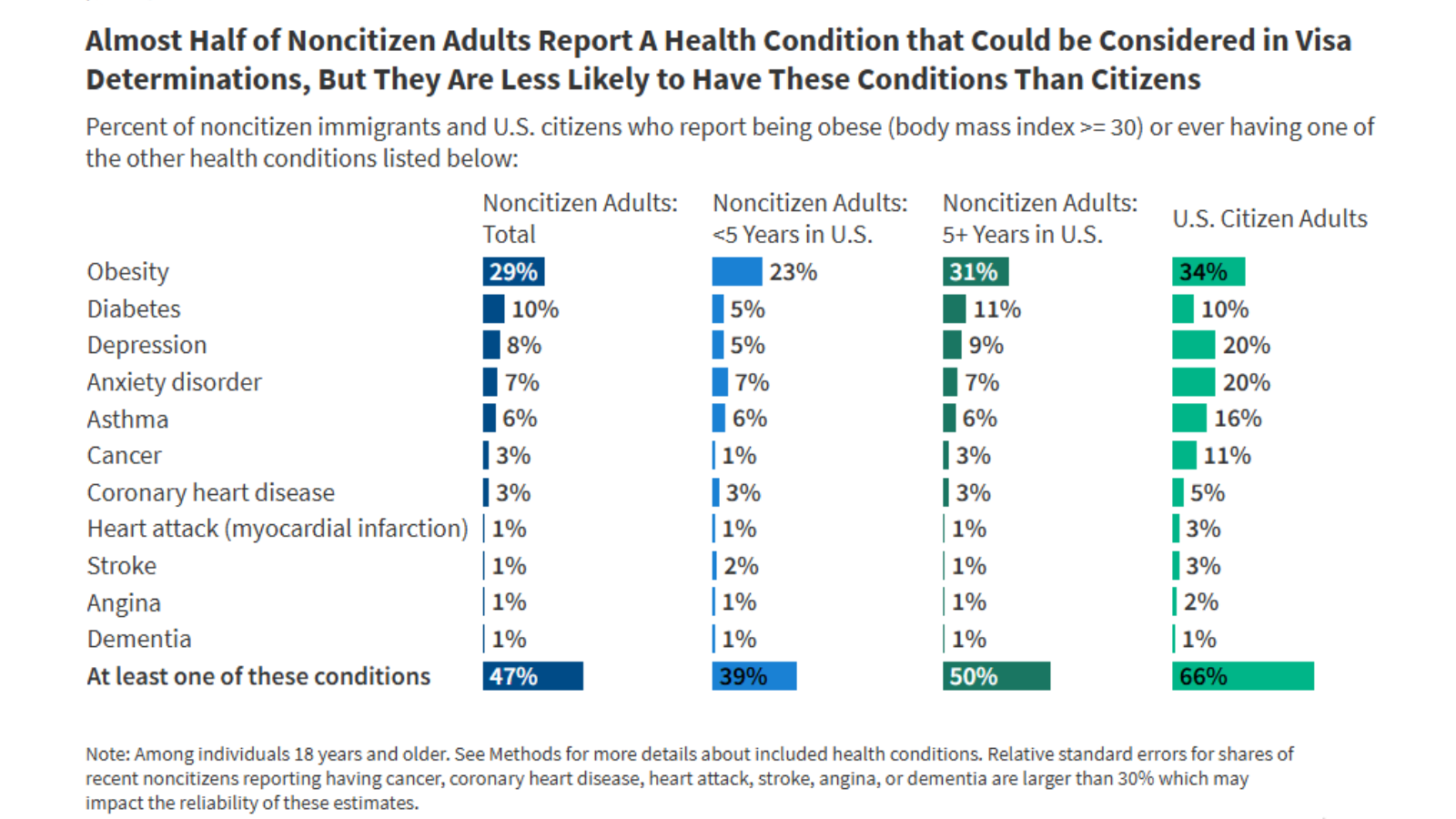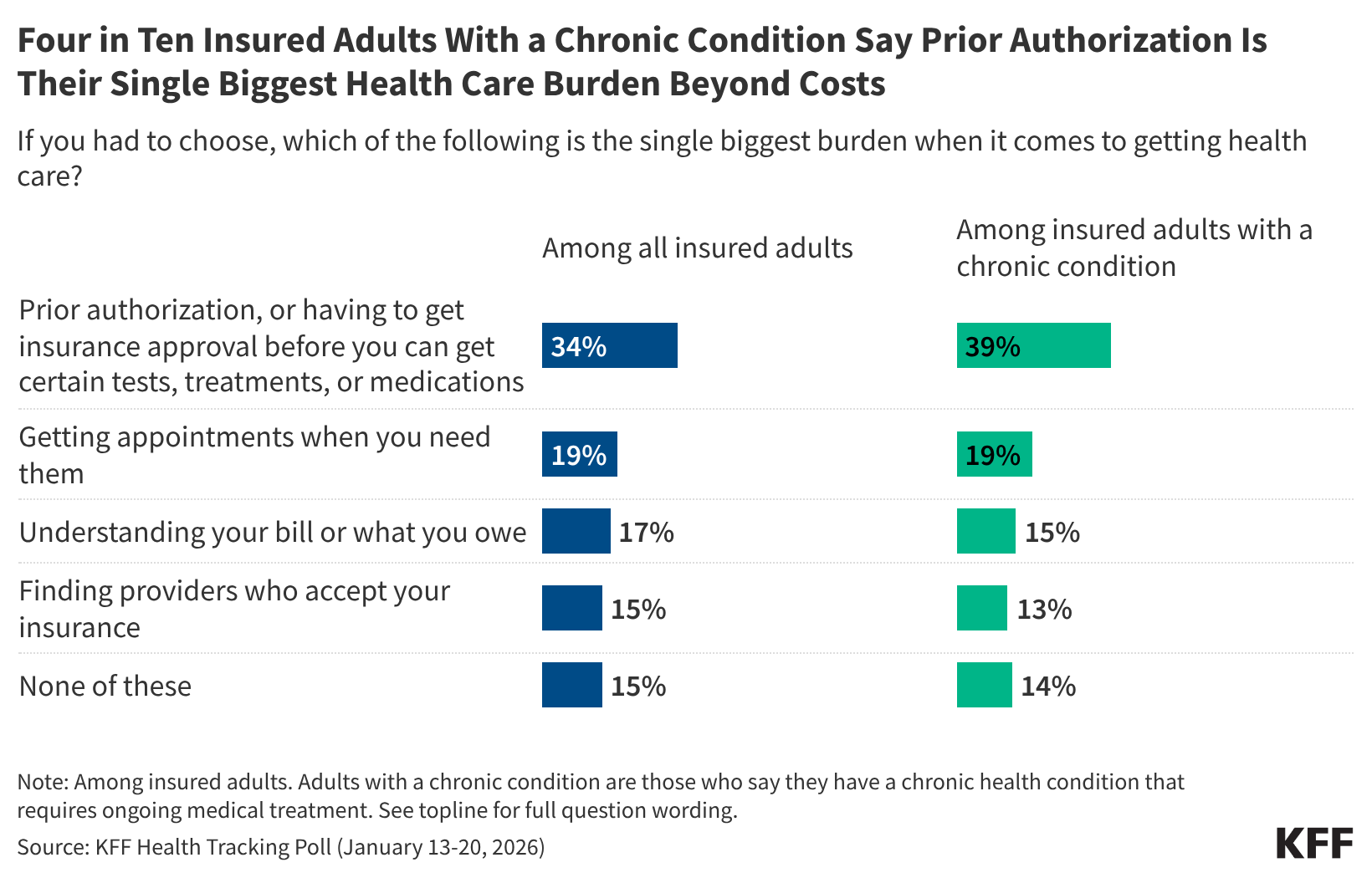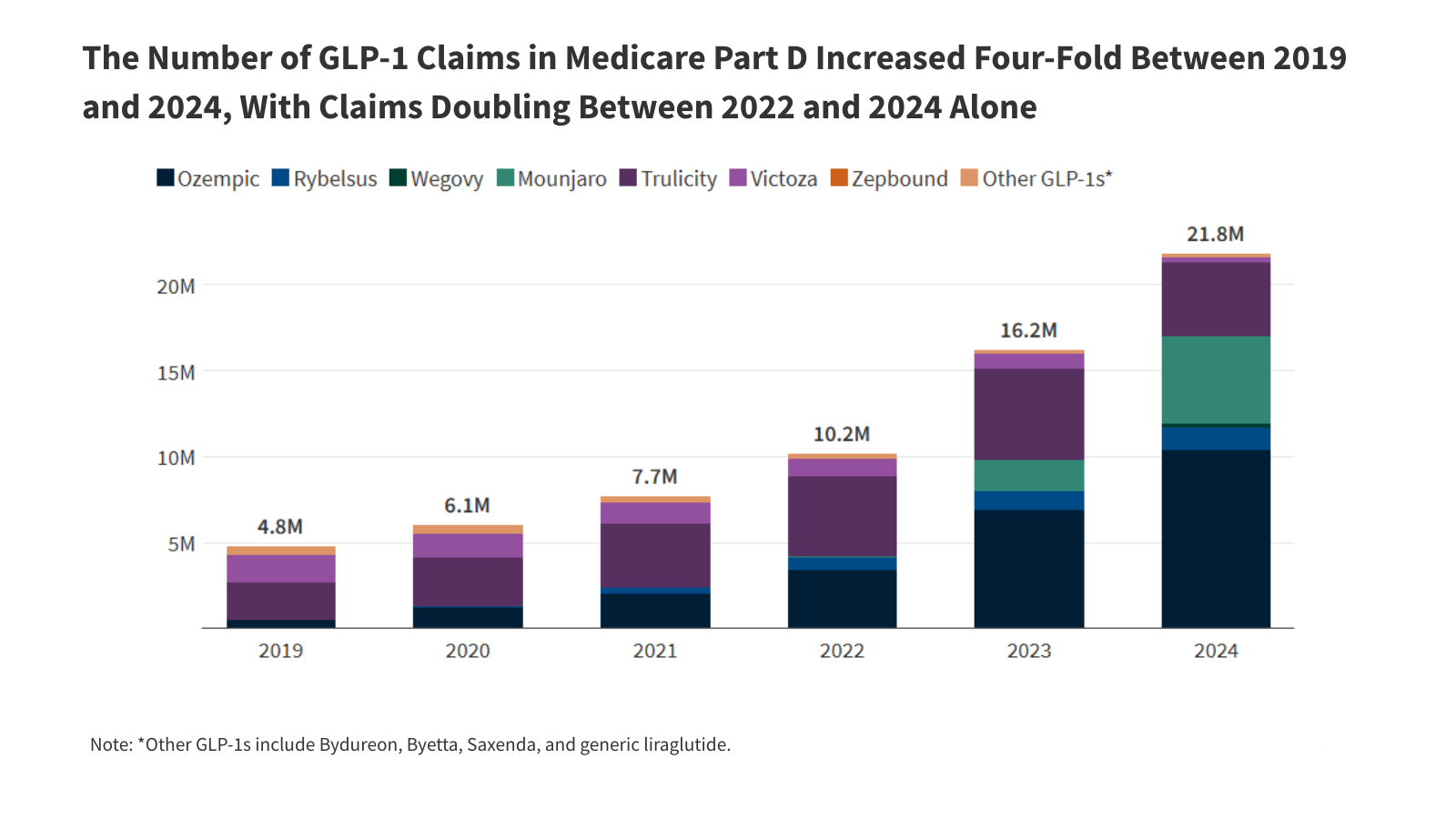Summary
Media reports indicate that the Trump administration’s Department of State issued new guidance that directs visa officers to consider a wide range of health conditions when reviewing visa applications to enter the U.S. under the premise that these conditions could lead to people becoming a “public charge,” or reliant on the U.S. government for subsistence. KFF’s news operation, KFF Health News, examined the guidance and reported that “foreigners seeking visas to live in the U.S. might be rejected if they have certain medical conditions, including diabetes or obesity, under a Thursday directive from the Trump administration.” Further, President Trump has indicated that this policy will ban entry for “those whose poor health will overburden our health care system.”
Visa applicants already undergo medical exams and screenings, but the guidance expands the list of health conditions for visa officers to consider and provides significant discretion to officers to predict the potential long-term health and financial implications of common chronic conditions. The guidance applies to people seeking entry for permanent residence in the U.S. for work or to be with family as well as to those applying for temporary visas. The guidance extends President Trump’s broad efforts to restrict immigration into the U.S. and will likely increase barriers to family reunification and reduce the pool of available workers in the U.S., including H-1B workers, who come to the U.S. to work temporarily in specialty occupations like engineering, technology, and medicine.
Soon after this guidance was issued, the Department of Homeland Security also proposed new regulations that would rescind a 2022 Biden-era rule related to public charge determinations that apply to people seeking adjustment to lawful permanent resident (LPR or green card) status within the U.S. The guidance and proposed rule would significantly increase discretion provided to immigration officers in making public charge decisions and could allow them to consider factors that had been excluded under the 2022 rule, including use of health, nutrition, and housing programs such as Medicaid, the Children’s Health Insurance Program (CHIP), and the Supplemental Nutrition Assistance Program.
This analysis examines the share of noncitizen and citizen adults currently living in the U.S. who have one of the health conditions identified in the visa guidance. It is based on KFF analysis of the 2024 National Health Interview Survey (NHIS) sample adult file (see Methods for more details). While the analysis focuses on individuals already residing in the U.S., it provides insight into the scope of people who might be affected while seeking entry to the U.S.
The analysis shows that almost half of noncitizen immigrant adults in the U.S. have one of the health conditions listed in the guidance, dropping to about four in ten who arrived in the U.S. recently, but they are less likely to have these conditions than their citizen counterparts. Nearly half of noncitizen adults (47%) have one of the health conditions identified in the guidance compared to two in three (66%) citizen adults. Among noncitizen adults who have been residing in the U.S. for less than five years, about four in ten (39%) report having at least one of these conditions.
Findings
Under longstanding law, federal officials can deny entry to the U.S. or adjustment to lawful permanent resident (LPR) status (i.e., a “green card”) to someone they determine to be a public charge. The law specifies that officials must consider certain minimum factors when making public charge determinations, including age; health; family status; assets, resources, and financial status; and education and skills.
While immigrants seeking entry to the U.S. have long been required to undergo a health assessment as part of the visa application process, according to news reports, the U.S. Department of State recently issued a directive to embassies and consular offices instructing visa officers to consider a broader range of health conditions when reviewing visa applications, citing these health conditions as potentially draining U.S. resources. Under longstanding policy, immigrants seeking entry to the U.S. have been required to undergo health assessments as part of the visa application process. However, the health assessment generally only considered whether an applicant had a specified communicable disease, such as tuberculosis; a serious physical or mental health condition; and proof of certain vaccinations. The new guidance directs visa officers to consider a broader set of chronic health conditions in making visa determinations, “including, but not limited to, cardiovascular diseases, respiratory diseases, cancers, diabetes, metabolic diseases, neurological diseases, and mental health conditions.” It encourages officers to consider other conditions, like obesity, which it notes can cause asthma, sleep apnea, and high blood pressure. The guidance also directs visa officers to consider the health of family members, including children or older parents.
The guidance indicates that officers should consider these health conditions to assess whether an immigrant could become a public charge and denied entry into the U.S. If an individual seeking a visa to reside in the U.S. has one of the identified chronic conditions, the guidance directs officers to consider whether the applicant has adequate financial resources to cover the costs of medical care over “his entire expected lifespan without seeking public cash assistance or long-term institutionalization at government expense.” As such, it relies on significant discretion of visa officers to make long term predictions about the health and financial implications of health conditions even though they are not trained medical professionals.
Data show that almost half of noncitizen immigrant adults in the U.S. have one of the health conditions listed in the guidance, dropping to about four in ten who arrived in the U.S. recently, but they are less likely to have these conditions than their citizen counterparts. As of 2024, nearly half (47%) of noncitizen immigrant adults in the U.S. report ever having at least one health condition that could be considered when applying for a U.S. visa under the guidance. About three in ten (29%) report being obese, 10% report ever having diabetes, 8% report ever having depression, 7% report ever having an anxiety disorder, 6% report ever having asthma, with smaller shares reporting ever having cancer, coronary heart disease, myocardial infarction (heart attack), stroke, angina, or dementia (Figure 1). Significantly higher shares of U.S. citizen adults report having these health conditions, with two in three (66%) reporting having at least one. Immigrants who have arrived in the U.S. more recently are even less likely to report one of these health conditions, with about four in ten (39%) of noncitizen immigrant adults who have been in the U.S. for less than five years reporting ever having at least one. These lower rates likely reflect them being younger and healthier than their U.S. citizen and longer-residing immigrant counterparts.
The new Trump administration visa guidance will further restrict immigration into the U.S., creating barriers to family reunification and limiting the pool of available workers, including H-1B workers, who come to the U.S. to work temporarily in specialty occupations like engineering, technology, and medicine. Immigrants, including noncitizen immigrants, play a significant role in the U.S. workforce in occupations such as health care, STEM, agriculture, and construction. Further, research suggests that immigrants tend to have lower health care expenditures than U.S.-born citizens and may help to subsidize the health care costs incurred by their U.S.-born counterparts. Moreover, the guidance, along with the proposed rule to remove 2022 public charge regulations, will likely make immigrant families more reluctant to access health care and health coverage due to confusion and fear about public charge rules. KFF/New York Times 2025 Survey of Immigrants data show there already has been an increase in the share of immigrant adults reporting avoiding health care and/or assistance programs for themselves or their families due to President Trump’s immigration policies.
Methods
Data source: These findings are based on KFF analysis of the 2024 National Health Interview Survey (NHIS) sample adult file. NHIS is a continuous national survey of the U.S. civilian non-institutionalized population conducted by the Centers for Disease Control and Prevention. The 2024 sample adult file contains 32,629 observations of individuals 18 years and older.
Identifying noncitizen immigrants: Noncitizen immigrants are identified as those whose citizenship status is reported as “No, not a citizen of the United States” (n=2,089) whereas U.S. citizens are identified as those whose citizenship status is reported as “Yes, a citizen of the United States” (n=29,279). Individuals who are identified as noncitizen immigrants are further broken out into those who report being in the U.S. for less than five years and those who report being in the U.S. for five or more years.
Identifying health conditions included in new visa guidance: Based on details listed in news reports, the following health conditions from NHIS were included in this analysis: ever having angina; ever having anxiety disorder; ever having asthma; ever having any cancer; ever having coronary heart disease; ever having dementia; ever having depression; ever having diabetes; ever having a heart attack (myocardial infarction); ever having a stroke; or having a body mass index of 30 or higher.
Note: Relative standard errors for shares of recent noncitizens reporting having cancer, coronary heart disease, heart attack, stroke, angina, or dementia are larger than 30% which may impact the reliability of these estimates.
Publisher: Source link










